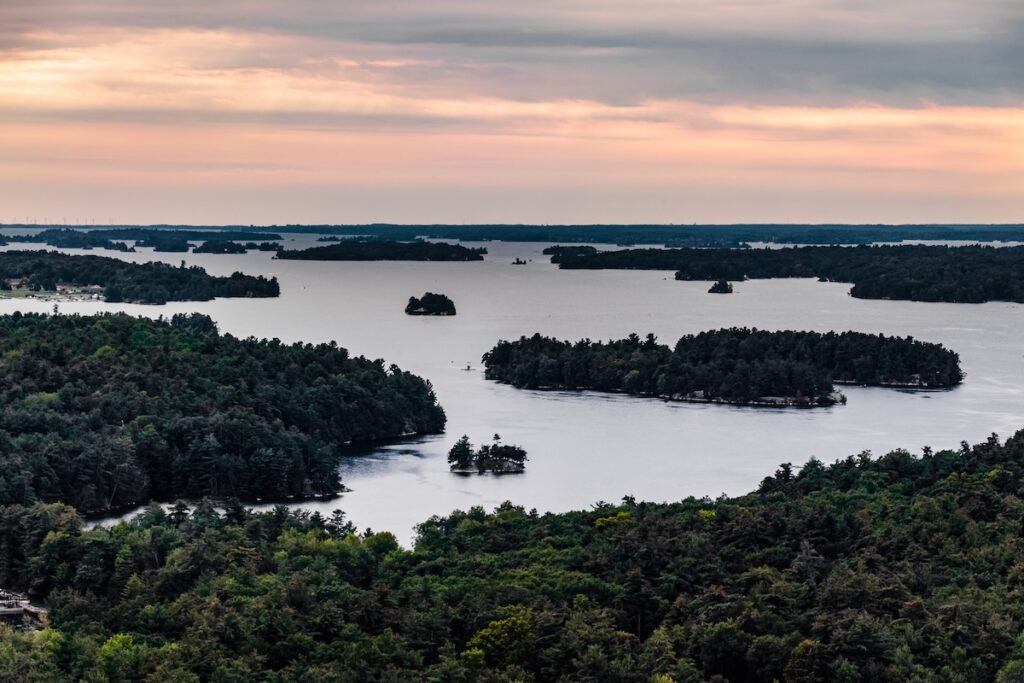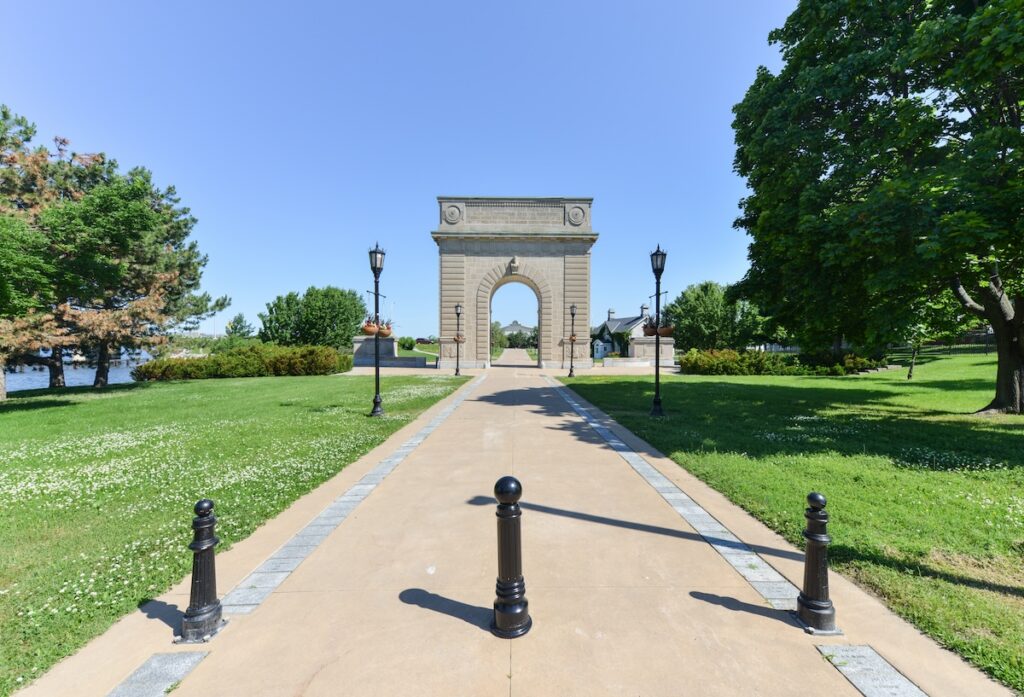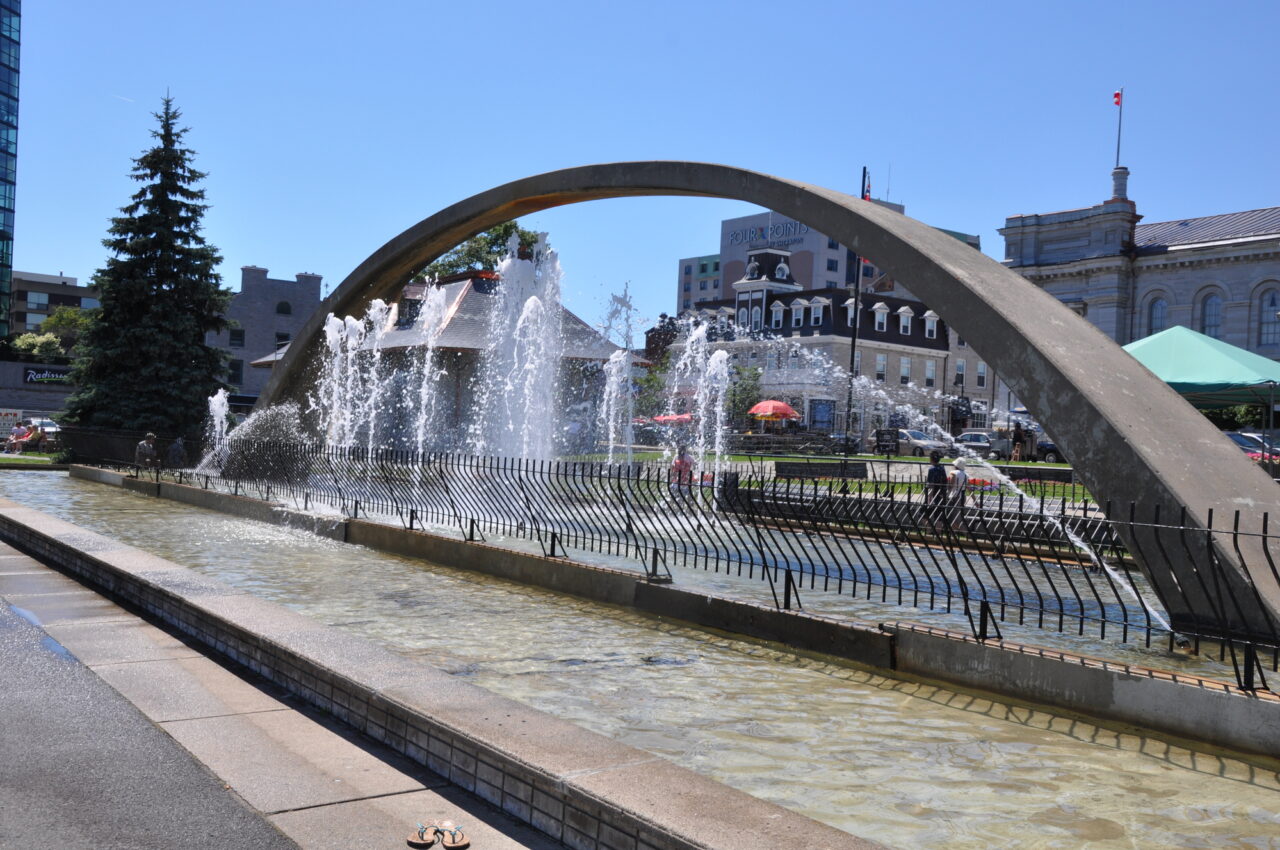Kingston is located in southeastern Ontario at the intersection of Lake Ontario and the St. Lawrence River. It was first settled by Europeans in the 1670s as a trading post called Cataraqui. In the 1780s, Kingston became a major naval base and shipbuilding centre for the British Royal Navy on Lake Ontario.
Kingston was incorporated as a city in 1846 and designated as Ontario’s first capital from 1841 to 1844. Its strategic position on the Great Lakes-St. Lawrence waterway system made it an important military, naval, and commercial hub throughout the 19th century. Industries that developed included shipbuilding, sawmills, and flour milling powered by the Cataraqui River.
By the 1850s, Kingston’s population had grown to over 10,000 residents as it served as an eastern gateway to Canada. The opening of the Grand Trunk Railway in 1856 brought more prosperity by facilitating trade and travel. Kingston remained a centre for education with Queen’s University founded in 1841. It also became known for its limestone architecture after extensive quarrying began in the 1830s.
In the early 20th century, Kingston’s economy diversified with the rise of the Canadian Locomotive Company and DuPont Canada paint factory. It also hosted major military installations like Royal Military College and HMCS Cataraqui naval reserve barracks. After WWII, newer industries like communications and healthcare emerged. Today, Kingston is home to major employers like the corrections facility at Collins Bay Institution and Hotel Dieu Hospital.
Kingston maintains a lively cultural scene. Historic sites include Fort Henry national historic site and the Rideau Canal UNESCO World Heritage Site. Arts hubs include the Isabel Bader Centre for the Performing Arts and the Agnes Etherington Art Centre at Queen’s University. Kingston hosts numerous annual festivals celebrating music, food and the arts.

Thousand Islands in Ontario, Canada
With a population of over 123,000, Kingston retains its small-city feel while providing urban amenities. Its waterfront, parks, and nearby Thousand Islands region make it a popular tourist destination. The city has worked to revitalize its downtown core in recent decades through projects like the Kingston Centre redevelopment.
Kingston’s blend of history, education, healthcare and proximity to Lake Ontario and the St. Lawrence River has made tourism and recreation major industries. Popular attractions include the Royal Military College of Canada National Historic Site, Fort Henry National Historic Site, and the Rideau Canal. Annual events like the Kingston Buskers Rendezvous and Kingston Jazz Festival draw visitors.
The waterfront has undergone extensive redevelopment in recent decades. Major projects include the Confederation Basin Marina, Rogers K-Rock Centre entertainment venue, and Leon’s Centre arena. Improved waterfront parks, bike paths and public spaces have made the waterfront a vibrant community hub.
Queen’s University is a top research university located in downtown Kingston. Established in 1841, it now has over 23,000 students and is a major economic driver. St. Lawrence College is also located in Kingston and offers college diploma and certificate programs. The city is considered one of Ontario’s major educational centres.
Kingston maintains a balance as a mid-sized city with a small-town feel. Neighborhoods contain well-preserved historic homes and a mix of housing types. Downtown Kingston contains numerous local shops, restaurants and nightlife along vibrant Princess Street. As the county seat of Frontenac County, Kingston acts as a regional hub for southeastern Ontario.
Looking towards the future, Kingston is focused on further waterfront development, downtown revitalization, and leveraging its educational and cultural assets. Sustainable growth and enhancing livability will help Kingston build upon over 350 years of history as a strategic Great Lakes port and eastern Ontario capital. Its combination of heritage, scenic beauty and urban amenities make it a desirable place to
Kingston’s combination of heritage, scenic beauty and urban amenities make it a desirable place to live and visit. The city has a diverse economy anchored by education, healthcare, tourism and government sectors.

Royal Military College of Canada Memorial Arch, Kingston, Ontario.
Kingston sees roughly 2.5 million visitors annually who are drawn to attractions like Fort Henry, the Thousand Islands region and the Rideau Canal. Tourism is a major industry supported by the city’s deep roots and cultural offerings.
Looking to the future, Kingston aims to build on recent waterfront revitalization successes with continued redevelopment of under-utilized areas. Leveraging the city’s position as a centre of learning through partnerships between Queen’s University and St. Lawrence College also features in plans.
Kingston has experienced steady population growth in recent decades that city leaders want to manage sustainably through diverse housing and employment opportunities. Maintaining a vibrant downtown and enhancing urban trails and green spaces will also help Kingston retain residents and attract new ones.
Over 350 years after its founding as a strategic Great Lakes trading post and shipbuilding centre, Kingston has evolved into a major educational and cultural hub of eastern Ontario. Its scenic waterfront setting and blend of historic character and modern amenities make it an appealing place to live and visit with no signs of slowing down. Kingston’s future looks bright as it builds upon the strong foundations laid throughout its long history.
City Information:
- Kingston, Ontario
- Eastern, Ontario
- https://www.cityofkingston.ca/
